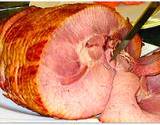|
Grandma's Chromium and
|
Because it is involved in the metabolism of glucose, chromium (sometimes also called glucose tolerance factor or GTF) is needed for energy. It is also vital in the synthesis of cholesterol, fats, and protein.
This essential mineral maintains stable blood sugar levels through proper insulin utilization, and can be helpful both for people with diabetes and those with hypoglycemia. Studies have shown that low plasma chromium levels can be an indication of coronary artery disease.
Chromium deficiency can lead to:
- anxiety
- fatigue
- glucose intolerance (particularly in people with diabetes)
- inadequate metabolism of amino acids
- increase risk of arteriosclerosis
Excessive intake can lead to Chromium toxicity, which has been associated with:
- dermatitis
- gastrointestinal ulcers
- kidney and liver impairment
Chromium is best absorbed by the body when: it is taken in a form called Chromium Picolinate (chromium chelated with picolinate, a naturally occurring amino acid metabolite).
Picolinate enables chromium to readily enter into the body's cells, where the mineral can then help insulin do its job much more effectively.
Chromium Picolinate has been used successfully to control blood cholesterol and blood glucose levels. It also promotes the loss of fat and an increase in lean muscle tissue. Studies show it may increase longevity and help to fight osteoporosis. Chromium polynicotinae (chromium bonded in niacin) is an effective form of this mineral as well.
 |  |  |
Natural Chromium Food Sources and
Herbal Sources of Chromium
Chromium is found in the following food sources
- beer
- brewer's yeast
- brown rice
- cheese
- meat
- whole grains
It may also be found in
- dried beans
- blackstrap molasses
- calf liver
- cheese
- chicken
- corn
- corn oil
Herbs that contain Chromium include:
- catnip
- horsetail
- licorice
- nettle
- oat straw
- red clover
- sarsaparilla
- wild yam
- yarrow
Cautions
If you have diabetes, do not take supplemental chromium (especially chromium picolinate) without consulting with a qualified health care provider. This supplement can affect insulin requirements, so you will have to monitor your blood sugar level very carefully.
Some people may experience lightheadedness or a slight skin rash when taking chromium. If you feel lightheaded, stop taking the supplement and consult your health care provider. If you develop a rash, either try switching brands or discontinue use.
Return from Chromium Guide to Grandma's Vitaimin List Guide
Return to Grandma's Herbal Remedies Home





